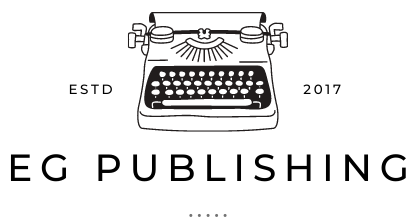By Charlotte Shaff of The Media Push
There is nothing better than free publicity. But getting it isn’t always easy or glamorous. Here are 25 things you should be aware of and ready for when seeking your 15 seconds of fame through TV, radio or print.
1. Many times there is an immediate sense of urgency in the media. You must act if you want media coverage. If a reporter calls and you miss it, return their call as soon as you can. If it’s a topic you aren’t comfortable discussing or you aren’t the right person, that doesn’t mean you ignore them. They reached out to you for a reason and it’s better to be honest and recommend another source for them.
2. You may have to drop your plans if a reporter calls. For example, they could get a story assigned at 1 p.m. and need an interview and story done by 5 p.m. If they call, find a way to make this work for them.
3. You might have to get up at 4 a.m. for a 5 a.m. interview. A few hours of lost sleep is worth the great exposure you’ll get from morning show viewers.
4. You may spend hours prepping for a TV segment and only 20 seconds of it is shown in a story. This is the reality of editing and time elements behind the scenes with producers.
5. Sometimes you are only half of the story. And the other side is offering a different view regarding what you do or say. Journalists don’t write sales copy, they report news. To be unbiased, they will sometimes look for another source to
discuss the topic at hand.
6. Unless you are a big-name celebrity or did something absolutely amazing, an article won’t always be all about you. Most reporters look for a variety of people to profile or quote to make the story balanced.
7. Don’t expect a profile story or front-page story every time you have news.
8. Never threaten a reporter or try to bribe them into a story. You’ll get blacklisted and so will your public relations representative!
9. Just because you advertise does not mean you will get editorial coverage. Reporters will cringe if you tell them you’re an advertiser and want them to do a story. Yes, there are some situations and media outlets that offer play for pay, but that’s a whole other topic to discuss for marketing plans.
10. Sometimes you’ll have a 5-minute TV segment that ends up being only 2 minutes. Or spend an hour being interviewed by a reporter and just one comment is used in an article.
11. Sometimes the interviewer won’t ask you anything from the talking points provided prior to the interview. Be prepared for possible off-the-wall questions or controversial viewpoints, too.
12. A reporter is working on a variety of stories at a time. They may not even know your name until they look at their script/notes or understand what you do. Be aware and be prepared for your interviews so your point and name or business
comes across when speaking. Sometimes a reporter will call you by the wrong name or mispronounce your business or service. Politely explain the right way to say it.
13. There are no guarantees. A reporter may be planning a big story centered around you and then it is dropped. You may have a bunch of live shots and interviews set up and then big national news happens. Many times there is no
make-up story afterwards. This is the reality of the media and why it’s important to do multiple things to promote your news.
14. A story could be rescheduled many times. Sometimes the reporter doesn’t know when it will run.
15. Cold hard fact: many times the interviewer doesn’t really care about the topic. For example, in a TV interview, they will have a producer and director in their ear talking as you talk, so you may feel ignored, that they aren’t listening or don’t care. But that doesn’t matter—you still need to get your message out to the audience, so be energetic and informative in everything you say.
16. Visuals are important. Many media outlets, especially local newspapers and magazines, don’t have the staff on hand to come out and shoot photos for you. Have high-resolution photos available of you, your customers and your
services/products. The same goes with TV – Show, display or demonstrate what you are talking about.
17. A media coach is a very wise investment. If you want to get the right message across, you need to know how to do it and you must practice, practice, practice.
18. Your clients or customers are needed for stories. Always have a few people in mind that will speak to a reporter.
19. Don’t ask for media coverage and then get shy about the calls or attention or coverage. What’s the point?
20. Everything is on the record. Don’t say “No comment” or ask for certain things to be “off the record.”
21. Be respectful of the reporter’s time. And always be willing to take a phone interview. Especially in print, many writers are freelancers who aren’t being paid much to cover the story, so a phone interview may make the difference between coverage and no coverage. The same goes for questions via e-mail.
22. Follow up. If you have a PR rep, they should be doing this for you. But, if not, send a thank you note after the story airs—it’ll make the reporter feel appreciated and will keep you at top of mind for future stories.
23. Be professional. If you ‘hit it off’ with a particular reporter, it’s still not professional to request them to be your friend on Facebook or sign them up for your company newsletter. However, following their respective outlets via social media is great.
24. If you’re handling your own PR efforts, build relationships with local media. If you have a PR rep, this is what their job entails; so let them do their job. But, if you’re working solo, be friendly to local reporters.
25. You may be approached to advertise. Don’t be offended or rude—media outlets survive because of advertising dollars and they often will come to businesses they have featured in the past. If you don’t wish to, politely decline. But, if you are looking to advertise, consider your local outlets. While it’s true that advertising doesn’t guarantee press, many outlets will look to their advertisers as sources for stories and advertiser dollars are why the media outlets are there in the first place.
With diverse experiences in promotion, writing, producing, the media, customer service, and community relations, Charlotte Shaff has owned The Media Push, LLC since August 2005. Her sharp writing skills, keen promotional capabilities, connections in the Phoenix media and strong, Midwest work ethic bring Arizona small businesses exposure and credibility through smart, personalized PR campaigns. Reach her via phone at 602-418-8534 or email at [email protected].


